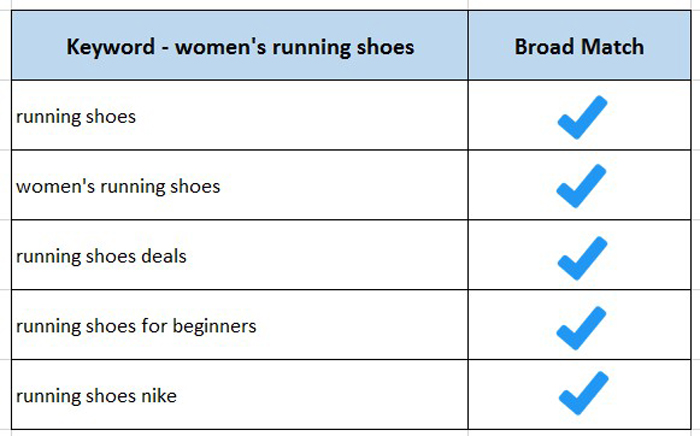In the fast-paced world of digital marketing, mastering pay-per-click (PPC) advertising can feel like a daunting task. One crucial element that often stirs up confusion among marketers is broad match keywords. They promise great reach and visibility but also bring their own set of challenges. Whether you’re new to PPC or looking to refine your strategy, understanding when to leverage broad match keywords—and when to hold back—can significantly impact your campaign’s success. Let’s dive into what these keywords are all about and explore the best practices for maximizing your PPC efforts!
What are Broad Match Keywords?
Broad match keywords are a type of keyword targeting used in PPC advertising that allows your ads to be shown for a wide range of search queries. Instead of matching exactly or closely, these keywords can trigger your ad for variations, synonyms, related searches, and even misspellings.
For instance, if you choose the broad match keyword “Running Shoes,” your ad might appear when someone searches for “Best Sneakers” or “Training Footwear“. This flexibility opens up a broader audience but also leads to less control over who sees your ad.
Advertisers often appreciate this versatility because it increases exposure and drives more traffic. However, it’s essential to monitor performance closely since not every click will align with your target market’s intent. Understanding this balance is key as you navigate the complexities of PPC campaigns.

Advantages of Using Broad Match Keywords
Broad match keywords offer a significant advantage in expanding your reach. They allow your ads to appear for various related searches, even if the exact phrase isn’t used. This can lead to increased impressions and clicks.
Flexibility: Your ad may show up for synonyms or variations of your target keyword. This means you don’t have to micromanage every single term potential customer might use.
Cost-effectiveness: By casting a wider net, broad match keywords can help lower costs per click over time as you tap into more traffic sources without being overly restrictive.
Customer Behavior: They provide valuable insights into search trends. You can discover new keywords that resonate with your audience, refining your strategy further down the line while keeping your campaigns dynamic and responsive.
Disadvantages of Using Broad Match Keywords
Broad match keywords can sometimes lead to irrelevant traffic. This happens when your ads appear for searches that are only loosely related to your target audience. As a result, you may attract clicks from users who are not genuinely interested in your offerings.
Increased Costs: With broad match, you might find yourself paying for clicks that don’t convert. It’s easy to exhaust budgets on unwanted impressions and interactions.
Difficult Tracking: Tracking performance becomes trickier with broad match keywords. You lose clarity about which terms drive actual conversions, making it difficult to optimize effectively.
Broad Reach: Competition increases significantly with broader terms. Your ads could be competing against many others using similar keywords, reducing visibility and increasing cost-per-click rates over time.
When to Use Broad Match Keywords
Using broad match keywords can be a game-changer when you’re aiming for maximum reach. If your brand is new or you’re entering a competitive space, broad match allows you to tap into a wider audience. The more eyes on your ad, the better.
Consider this option when launching campaigns targeting generic terms. Broad matches help capture variations of those terms that you might not have considered but are still relevant to your product or service.
If you’re focusing on brand awareness rather than direct conversions, opt for broad match keywords. This strategy helps create visibility and recognition within your target market.
Adding a strong tracking tools and analytics in place, using broad match can provide valuable insights into customer behavior. You’ll uncover new opportunities and trends as customers engage with different keyword variations related to your business.
When to Skip Broad Match Keywords
Skipping broad match keywords can be wise in certain situations. If you have a limited budget, precision is crucial. Broad match can lead to high spending on irrelevant clicks.
When your product or service caters to a niche market, using more specific keywords helps target the right audience. Broad matches may attract too many uninterested users.
If your campaign goals are tightly defined, stick to exact and phrase match types for better control over ad placements. This minimizes wasted spend and optimizes ROI.
If you’re new to PPC advertising or don’t have extensive data yet, it’s best to avoid broad match initially. Starting with targeted options allows you to gather insights before expanding your reach.
Tips for Successful PPC Campaigns
To maximize your PPC success, it’s crucial to implement strategies that complement your use of broad match keywords. Start by conducting thorough keyword research. Understand the intent behind search queries to better align them with your offerings.
Utilize negative keywords to filter out irrelevant traffic. This will help you refine your audience and improve conversion rates by preventing unwanted clicks.
Regularly monitor and analyze campaign performance metrics such as click-through rates (CTR) and return on ad spend (ROAS). Use this data to adjust bids, pause underperforming ads, or shift budgets toward higher-performing keywords.
A/B testing different ad copies can also enhance effectiveness. Experiment with various headlines and descriptions to find which resonates most with your target audience.
Focus on optimizing landing pages for a seamless user experience. Ensure they are relevant to the ads and provide clear calls to action. By combining these tactics with a keen understanding of when to use or skip broad match keywords, you can elevate the performance of your PPC campaigns significantly.

